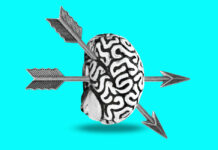An e-zine with the mission to contribute to changing the narrative about madness and mental distress in the Asia region has launched. Mad in Asia hopes to showcase narratives that are contextually relevant to the Asia region, with a focus on the human rights of persons with psychosocial disabilities.
We share the concerns that many activists and advocates around the world have about the dominance of the biomedical model in the understanding, treatment and care of people deemed ‘mentally ill’. Many of our countries still operate under the legacy of colonial institutions and legal frameworks set up to ‘manage’ the mad. Meanwhile, new ‘global movements’ have set out to create and replicate policies and institutions based on western psychiatry and clinical psychology. Even in the ‘alternatives to psychiatry’ context, efforts to drive innovations developed in the global north into the global south have sometimes tended to replicate old colonial tendencies.
We believe there is no single all-encompassing way to challenge and change the current narratives and practices that marginalise the experiences of persons with psychosocial disabilities. Nor can it be articulated in terms of an opposition to biomedical psychiatry and its institutions alone. In many of our countries, institutional psychiatry/psychology does not exist, and violation of our rights and personhood takes place within our societies, immediate community spaces and families. Collective action involves a whole range of negotiations as well as the affirmation and validation of knowledge, experiences and skills emerging from and responsive to local contexts. What is required, then, are contextually relevant multiple narratives.
The alliance of persons with psychosocial disabilities and cross disability supporters, TCI Asia (Transforming Communities for Inclusion of Persons with Psychosocial Disabilities, Asia), has been at the forefront of this work in the Asia region. Mad in Asia works in partnership with TCI Asia, aligning our objectives to focus on the human rights and community inclusion of persons with psychosocial disabilities. To change the ‘mental health’ narrative to one that critically engages with people’s lived experiences in our region, we believe that notions such as community, inclusion, rights, personhood, disability, society as well as madness, mental health and psychiatry need to be examined.
Mad in Asia is a space led by persons with psychosocial disabilities from Asian countries for negotiating and nurturing such narratives. We hope to do this in collaboration with our allies including cross disability activists, mental health workers, academics, social justice campaigners, family and community members, and anyone else interested in joining this online community for change. In doing this, we hope to disseminate the extensive knowledge (theories, investigations, actions and practices) held by our people and within our communities that come from different ways of understanding distress and from the direct experience of persons with psychosocial disabilities. Much of this knowledge is absent even from the current global ‘critical and progressive alternatives’ knowledge base. Writing out of Asia, in English as well as in regional languages, Mad in Asia makes a claim for a valid space for this collective knowledge base. For inclusion, as we understand it from the wisdom of the Convention on the Rights of Persons with Disabilities (CRPD), is material as well as epistemic.
The launch content covers a diverse range of topics. Bhargavi Davar writes about the importance of the CRPD in helping shape identities as well as what is perhaps the most important agenda for the region: transforming communities for the inclusion of persons with psychosocial disabilities. Writing from the Philippines, Janice Cambri sets out advocacy in the socioeconomic context of the country and the transformations required — and beginning to mobilise — to realise full human rights. Lynn Tang’s reflections on ‘recovery’ and what that means for persons with psychosocial disabilities in Hong Kong and in the Chinese diaspora living in the UK points to parallels in our collective concerns. The relevance of digital media as a peer support space and the complex ways in which it functions is the theme explored by Momina Masood and Noor ul Huda Niazi from Pakistan. Yang Weihua tells the story of one man’s fight for freedom from incarceration in psychiatric institutions in the context of laws governing mental health in China. We also feature TCI Asia’s advocacy efforts in representing regional concerns in UN forums as well as efforts underway in addressing the practical and ethical questions around the development of peer support in Japan specifically and across the region more broadly.
Mad in Asia is not envisaged as a daily webzine at this moment but as a blog site with regular updates. We hope to slowly build momentum and develop content that includes research and critical reflections, actions and innovations, practices based in art and creativity, and audio-visual content.
Mad in Asia is brought to you by TCI Asia in partnership with Mad in America, with fiscal support from the International Disability Alliance.















Thanks for the information, this is a great development.
Nearly 100 percent of my Recovery came from Traditional “Asian” Practice (now widely recognised and available outside of “Asia”).
Report comment
Good to see this work expanding beyond the purely English-speaking world.
Report comment
Psychosis or depression are the answers to the apollonian egoic fundamentalism which killed the meaning of the psyche, fantasy, imagination. IT IS A RATIONAZISM WE LIVE IN.
Psychosis, depression are the answers, the unique way of seeing the reality, not the problems with living , as if it psychopathology was something which don’t belong to psychological/human reality. Well this is psyche, and mental health utopists want’s to get rid of it. Mental health steal the meaning of psychological traits and leave only empty dehumanizing nominalism.
“The psyche can no longer by held by its old containers of Christian culture….”
“AND WITH SOUL’S RETURN, THE LITERAL MAY LOSE ITS DOMINION”
“AND THIS PSYCHOLOGY, FOR WHICH WE ERECT GREAT BUILDINGS TO WHICH THE STUDENTS FLOCK, WITH ITS LIBRARIES, LECTURES AND LABORATORIES, JOURNALS AND THERAPIES, MENTAL HEALTH CLINICS AND MENTAL HEALTH GRANTS, HAS BEEN AND STILL IS IMPOTENT.
NOTHING, NOTHING, NOTHING” JAMES HILLMAN, RE -VISIONING PSYCHOLOGY
“To move toward a renaissance, psychology would have to abandon one of its tenacious Reformational convictions.
It would have to move from a concern with the moral to a concern for imaginal,the image before the judgement, the imagination before the human….”
THE MORE WE HOLD BACK FROM THE RISK OF SPEAKING BECAUSE OF THE SEMANTIC ANXIETY THAT KEEPS THE SOUL IN SECRET INCOMMUNICADO, PRIVATE AND PERSONAL, THE GREATER GROWS THE CREDIBILITY GAP BETWEEN WHAT WE ARE AND WHAT WE SAY, SPLITTING PSYCHE AND LOGOS.
THE MORE WE BECOME TIED BY LINGUISTIC SELF- CONCIOUSNESS, THE MORE WE ABDICATE THE RULING PRINCIPLE OF PSYCHOLOGICAL EXISTENCE..————————–!!!!!!!!!!!!!
!!!!!!!!!!!!!!!!!!!!!!!!!!!!!!!!!!!!!!!!!THEN WE TURN TO THE RATS OF SKINNER, AND THE DOGS OF PAVLOV, THE GEESE AND WOLVES OF LORENTZ -TUNE INTO DOLPHINS OR CONSIDER MAN A NAKED APE – ON ORDER TO FIND PROTOTYPES FOR HUMAN BEHAVIOR, INDICATES TO WHAT EXTENT WE ARE LOSING OUR SPEECH AND WITH IT OUR SENSE OF A DISTINCTLY HUMAN NATURE. IT IS NOT ANIMAL PROTOTYPES WE NEED FOR DISCOVERING OUR NATURAL PATTERNS, BUT PERSONIFIED ARCHETYPES EACH OF WHOM WE SPEAKS, HAS A NAME.”
“BUT MAN IS HALF ANGEL,BECAUSE HE CAN SPEAK.”
JAMES HILLMAN, RE -VISIONING OF PSYCHOLOGY
Report comment
“People with psychoscial disabilities….” No, they are the dehumanized hostages of apollonian ego brainless, soulles deeply antipsychological culture. You can not even see the difference between apollonian ego hegemony AND ITS SIMPLICITY, fundamentalism OF GROWING UP MODEL and the more advanced DEMANDING PSYCHOLOGICAL archetypes – they are just “people with impairement in materialistic functioning”.
WE ARE TALKING ABOUT GIVING A NEW MEANING TO PSYCHE/PSYCHOPATHOLOGY, RATHER THAN CREATE NEW PRISONS FOR “PEOPLE WITH DISABILITIES IN MATERIALISTIC FUNCTONING”.
DO NOT TREAT PSYCHE AS A SOME KIND OF DOG TRAINING. BECAUSE MENTAL HEALTH/NORMALCY (SIMPLE apollonian ego archetype) IN PHENOMENOLOGICAL LANGUAGE, MEANS MUCH ——LESS———- THAN THE PSYCHOPATHOLOGY.
If you want to help psyche which is a hostage in apollonian ego reality, stop to treat everything else better than the psyche itself. And stop called psychological people like some kind of impaired kids.
You treat everything which is connect with psyche as some kind of impairement, and not the worth per se. Psyche do not need buildings and money it need proper langugae and respect.
WHAT DO YOU WANT? TO HAVE DOCILE IDIOTS SEEN BY OTHERS AS IMPAIRED DUMMIES OR PSYCHOLOGICAL PEOPLE BEYOND SIMPLE APOLLONIAN EGO ARCHETYPE WHO ARE TRAPPED IN THE STUPID SOULESS materialistic CULTURE.
WITHOUT THE PROPER MEANING, PSYCHE WOULD MEAN NOTHING AND STILL WOULD BE SEEN AS FUNCTIONAL DISABILITY,,,,,,,,,,, WHICH IS HERESY.
CREATE PRO PSYCHOLOGICAL BLACK PANTHER PARTY AND FIGHT FOR THE MEANING OF THE PSYCHLOGICAL TRAITS/(PHENOMENOLOGY OF THE PSYCHE) IN APOLLONIAN EGO DEAD CAMP FOR PSYCHE, AND IF YOU CAN NOT WIN – DIE WINNING.
Report comment
Love to see that how much work has been done on native language English.
Report comment